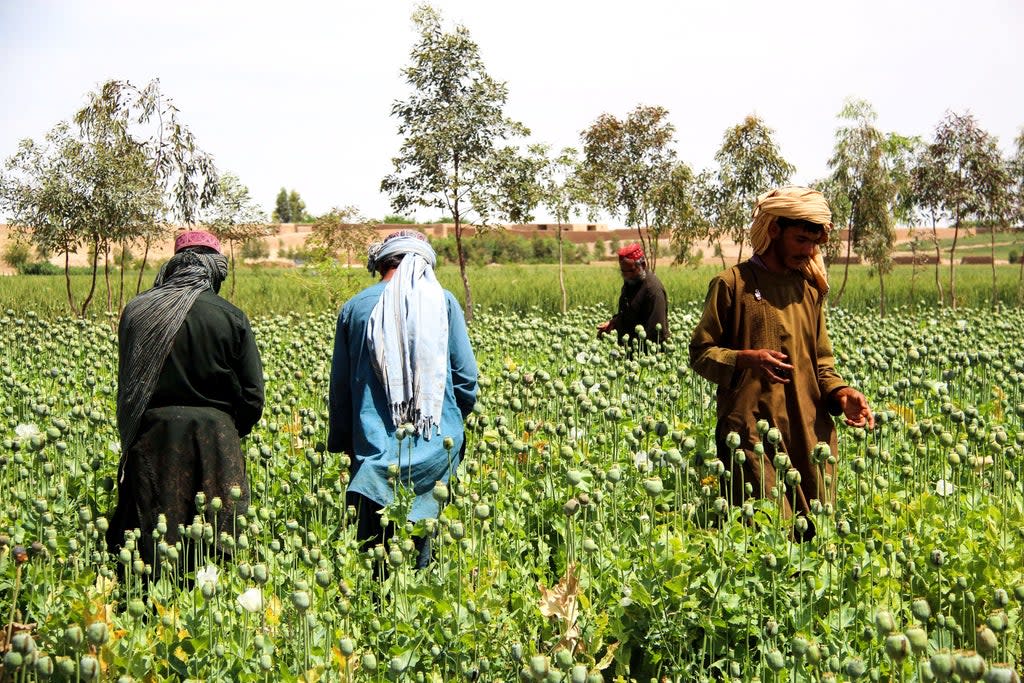We will soon feel the impact of bumper opium production in Afghanistan here in the UK

While the conflict in Afghanistan dominates the news, it’s easy to lose sight of the way the country dominates the world market in opium. Oil producers would be envious of the extent that this one country has a near monopoly on supplying the world with heroin. An estimated 80 per cent of the world’s opium is grown in Afghanistan.
Latest reports suggest that this year’s harvest will be a bumper one as farmers planted extra crops anticipating a poor year that didn’t ultimately materialise. This resulted in a 37 per cent increase in opium yield. For obvious reasons, estimating the value of this trade for Afghanistan is tricky but conservative estimates suggest opium brings in anywhere between $400m and $1.5bn annually. Contrast that with the $500m in humanitarian aid the country receives.
The Taliban has been quick to publicly state their intention to wipe out the cultivation and trade in opium. Given their ideology, however, they are unlikely to follow through on this ambition as they are reliant on the revenue opium brings, while those involved in the trade are deeply embedded in the communities that rely on the crop to survive. Afghanistan doesn’t have alternative sources of income that can match the wealth opium yields.
The Taliban have experience in the opium trade. Twenty years ago, when the original invasion took place, there was a near identical situation with over-planting of crops and a consequent fall in opium prices. The Taliban response was a near perfect manipulation of the market: they withheld supplies and prices rose. Why would they not make use of that experience this time round? They have no competition as yet, although that could change with the rise in synthetic opiates, something Public Health England has recently warned about due to a spike in fatal overdoses, mainly in the South of England.
What is certain is that we will soon feel the impact of bumper opium production in Afghanistan here in the UK. There are few people that use heroin recreationally; most are chronically dependent, using the drug multiple times a day, some intravenously. Despite falling numbers of heroin users, this is still a lucrative market given the loyalty of the customer base.
Even as numbers of heroin users decrease, the harm associated with the drug surges year on year. This year saw yet another record rise in fatal overdoses, most of which were due to heroin. Unlike regulated drugs there is no quality control or labelling giving details of potency. Any change in strength usually comes to light when it’s too late after ingestion and when an overdose occurs, fatal or otherwise.
The real danger with oversupply of opium and a rise in availability of synthetic opiate alternatives like fentanyl is that not only will prices fall but potency will increase. We’ve already witnessed this with cocaine, which is now more affordable and purer than it’s ever been. Rising potency is always associated with increased harm, some of which will be fatal.
While it may seem that we are immune from the current conflict in Afghanistan, the trade in opium makes clear that we are not. Sadly, our treatment services are in the worst shape they have ever been in, so are ill equipped to deal with any surge in availability and purity in heroin reaching the UK. These services have been starved of resources and can barely deal with those they already care for, never mind any increase in demand for specialist help.
It’s not just world trade that is increasingly interconnected but the social and economic circumstances that drive those on the sharp end of inequality into using heroin as they try to inoculate their first-hand experience of state failure to provide them with opportunity and support. In that sense opium does provide mass tranquilisation as inequality continues to thrive under a government which, like the Taliban, says one thing publicly but fails to back it up with meaningful action in policy or deed. It’s not Taliban approved heroin that kills but government political hypocrisy and inaction.
Read More
The Taliban: Who are they, who are the leaders and what do they want?

